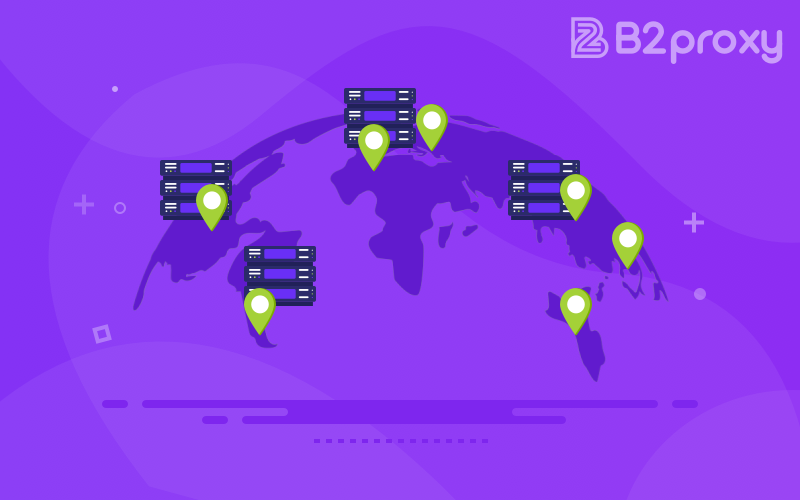Proxy IP: How to cleverly hide your real IP address?
 June 5.2025
June 5.2025

<p style="line-height: 2em;"><span style="text-wrap-mode: nowrap;">With more and more data breaches, privacy protection is becoming more and more important. To avoid ad tracking, bypass geo-restrictions, or protect yourself from malicious attacks, hiding your real IP address is a practical trick. Proxy IP is one of the key tools to achieve this.</span></p><p style="line-height: 2em;"><span style="font-size: 24px;"><strong><span style="text-wrap-mode: nowrap;"><br/></span></strong></span></p><p style="line-height: 2em;"><span style="font-size: 24px;"><strong><span style="text-wrap-mode: nowrap;">Why do I need to hide my real IP address?</span></strong></span></p><p style="line-height: 2em;"><span style="font-size: 24px;"><strong><span style="text-wrap-mode: nowrap;"><br/></span></strong></span></p><p style="line-height: 2em;"><span style="text-wrap-mode: nowrap;">On the Internet, your IP address is like your " residential address ", through which websites, advertisers and even hackers can track your location and online behavior. Hiding your IP address protects your privacy from advertisers and data analytics companies that want to track your browsing habits; it allows you to bypass geo-restrictions and access content that is limited to certain countries; and it prevents cyber-attacks and reduces the risk of targeted attacks by hackers. For business users, proxy IPs can also help with data collection and market research, accessing publicly available data from different regions without being blocked.</span></p><p style="line-height: 2em;"><span style="font-size: 24px;"><strong><span style="text-wrap-mode: nowrap;"><br/></span></strong></span></p><p style="line-height: 2em;"><span style="font-size: 24px;"><strong><span style="text-wrap-mode: nowrap;">How does proxy IP hide your real IP? </span></strong></span></p><p style="line-height: 2em;"><span style="font-size: 24px;"><strong><span style="text-wrap-mode: nowrap;"><br/></span></strong></span></p><p style="line-height: 2em;"><span style="text-wrap-mode: nowrap;">The core principle of proxy IP is "man-in-the-middle forwarding". When you use a proxy, your web request will not be sent to the target website directly, but will pass through the proxy server first, and then the proxy server will access and return the data for you. In this way, the target website sees only the IP of the proxy server, not your real IP. </span></p><p style="line-height: 2em;"><span style="text-wrap-mode: nowrap;">Common types of proxy IPs include transparent proxies, anonymous proxies, and high stash proxies. Transparent proxies can hide your real IP, but will be marked in the HTTP header "proxy used", suitable for internal traffic management, but not suitable for privacy protection. Anonymous proxies go one step further, not only hiding your real IP, but also not revealing to the target website that you are using a proxy, which is suitable for general privacy needs. The highest level, High Stash Proxy, completely hides your IP and proxy traces, and the target website cannot detect that you are using a proxy, which is suitable for high-privacy scenarios.</span></p><p style="line-height: 2em;"><span style="font-size: 24px;"><strong><span style="text-wrap-mode: nowrap;"><br/></span></strong></span></p><p style="line-height: 2em;"><span style="font-size: 24px;"><strong><span style="text-wrap-mode: nowrap;">How to choose the right proxy IP? </span></strong></span></p><p style="line-height: 2em;"><span style="font-size: 24px;"><strong><span style="text-wrap-mode: nowrap;"><br/></span></strong></span></p><p style="line-height: 2em;"><span style="text-wrap-mode: nowrap;">Different needs require different proxy solutions. While free proxies are easy to obtain, they are slow and unstable, and may even steal your data; paid proxies offer faster speeds, higher anonymity, and are suitable for business use. In terms of IP source, data center proxies come from cloud servers with IP segments that are easy to identify and block, making them suitable for short-term tasks; Residential proxies come from real home networks, which are more difficult to detect, making them suitable for long-term stable use.</span></p><p style="line-height: 2em;"><span style="text-wrap-mode: nowrap;">If you need to log in to an account for a long time, the fixed IP of a static proxy will be more suitable; and if you need to carry out crawling, batch registration and other scenarios that require frequent IP changes, the automatic IP change function of a dynamic proxy will come in handy.</span></p><p style="line-height: 2em;"><span style="font-size: 24px;"><strong><span style="text-wrap-mode: nowrap;"><br/></span></strong></span></p><p style="line-height: 2em;"><span style="font-size: 24px;"><strong><span style="text-wrap-mode: nowrap;">Common application scenarios of proxy IP </span></strong></span></p><p style="line-height: 2em;"><span style="font-size: 24px;"><strong><span style="text-wrap-mode: nowrap;"><br/></span></strong></span></p><p style="line-height: 2em;"><span style="text-wrap-mode: nowrap;">Proxy IP has many wonderful uses in daily network use. For example, watching HBO Max with US proxy IP, or playing region-limited handheld games with Japanese proxy IP can easily break through regional restrictions. For cross-border e-commerce practitioners, proxy IP can help conduct market research, because Amazon, eBay and other platforms will adjust prices according to user IP. Social media operators, on the other hand, can manage multiple accounts with proxy IPs to avoid being banned for logging into multiple accounts with the same IP.</span></p><p style="line-height: 2em;"><span style="text-wrap-mode: nowrap;">Business users can also utilize proxy IPs for network security testing, simulating access from different regions to test firewalls and anti-fraud systems. All of these applications demonstrate the strong practical value of proxy IP.</span></p><p style="line-height: 2em;"><span style="font-size: 24px;"><strong><span style="text-wrap-mode: nowrap;"><br/></span></strong></span></p><p style="line-height: 2em;"><span style="font-size: 24px;"><strong><span style="text-wrap-mode: nowrap;">Precautions for using proxy IP </span></strong></span></p><p style="line-height: 2em;"><span style="font-size: 24px;"><strong><span style="text-wrap-mode: nowrap;"><br/></span></strong></span></p><p style="line-height: 2em;"><span style="text-wrap-mode: nowrap;">Although proxy IP is very practical, you should pay attention to several key points. First, choose a trusted service provider and avoid using free proxies from unknown sources to prevent data leakage. Secondly, you should comply with laws and regulations. Some countries/regions have restrictions on the use of proxy IP. Finally, pay attention to the way of use, frequent IP replacement or malicious crawling may lead to IP blocking.</span></p><p style="line-height: 2em;"><span style="text-wrap-mode: nowrap;">Proxy IP is an effective means to hide the real IP. Whether it is for personal privacy protection or commercial use, it provides a flexible and secure way to access the network. By choosing the right type of proxy and using it wisely, you can enjoy the convenience of the Internet while better protecting your digital identity.</span></p>
You might also enjoy









